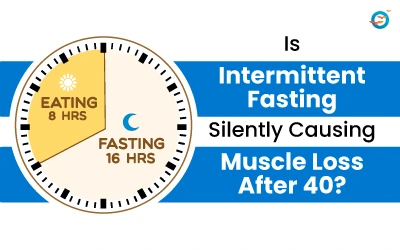Diabetes and Depression: The Emotional Side No One Talks About

The Emotional Side of Living with Diabetes
When most people think of diabetes, they picture blood sugar checks, insulin injections, or diet plans. But for many, the most challenging part isn’t physical but emotional. Research shows a strong connection between diabetes and depression, yet it’s rarely talked about. So, why are people with diabetes more prone to anxiety, low mood, and emotional fatigue? Let’s explore how diabetes affects your mind, not just your body and what you can do about it.
The Emotional Weight of Diabetes
Living with diabetes can feel like a full-time job. Constant sugar monitoring, food restrictions, fear of complications, it’s exhausting. This emotional strain often leads to depression due to diabetes, especially in those managing type 2 diabetes long-term.
Studies show a clear correlation between diabetes and depression, with people living with diabetes being twice as likely to develop symptoms of depression or anxiety compared to those without it. The daily pressure to “stay in control” contributes to a hidden but very real condition: diabetes fatigue and depression.
How Stress Raises Your Blood Sugar Levels?
So how exactly does stress impact blood sugar?
When you're under mental or physical stress, your body releases cortisol, the “stress hormone.” High cortisol blood glucose levels raise your blood sugar as part of your body’s fight-or-flight response. This explains why even people eating well and taking their medications sometimes see unexplained sugar spikes.
Yes, stress and blood sugar are deeply connected. And it’s not just about occasional stress; chronic mental pressure leads to long-term changes in how your body handles sugar, making blood glucose harder to control.
How Emotions and Sugar Levels Affect Each Other?
The relationship between depression and diabetes type 2 isn’t one-way. Poor mental health makes it harder to manage diabetes. And poor diabetes control leads to more anxiety, more fatigue, and often, guilt.
This creates a loop where emotional struggles make it harder to stick to medication, eat right, or stay active driving sugar levels up. And high sugar levels can worsen mood, creating a cycle that feeds itself.
This is where the diabetes and depression correlation becomes especially damaging and often, unnoticed.
How to Break the Cycle?
The good news? You don’t have to feel this way forever. Managing your mental health is just as important as managing your blood sugar.
Here are a few steps that help:
- Talk to someone – A counselor, doctor, or even a support group.
- Move more – Walking or yoga releases feel-good hormones.
- Track how you feel – Not just sugar, but also mood and energy.
- Be kind to yourself – You’re managing a lot, and every effort counts.
Taking care of your emotional well-being can reduce both depression due to diabetes and blood sugar variability.
Final Thoughts
Living with diabetes is hard and it's okay to say that. If you're feeling anxious, overwhelmed, or emotionally tired, you're not alone. Addressing your mental health can help you feel better and manage your sugar more effectively.
Recognizing the link between diabetes and depression is the first step. The next is getting the support you deserve.
To read more about Diabetes Prevention and Self-Management Guide, visit our blog.
FAQs
What is the link between diabetes and depression?
Chronic stress from managing diabetes increases the risk of depression. High blood sugar also affects mood-regulating hormones.Regular failure in one’s ability to manage their BSL can lead to feelings of helplessness, hopelessness, anxiety and ultimately.
Why are people with diabetes more likely to experience anxiety?
Fear of complications, daily sugar checks, and lifestyle limitations can cause ongoing anxiety.
Can blood sugar fluctuations cause mood changes?
Yes. Sharp highs or lows in blood sugar can affect mood, energy, and concentration.
Are depression and anxiety common in type 2 diabetes?
Yes. Studies show they are twice as common in people with type 2 diabetes.
Can emotional health impact blood sugar control?
Absolutely. Stress and depression can disrupt hormones and routines, raising blood sugar.
Can lifestyle changes improve mental health in diabetes?
Yes. Exercise, better sleep, therapy, and support systems can ease symptoms and support sugar control.

